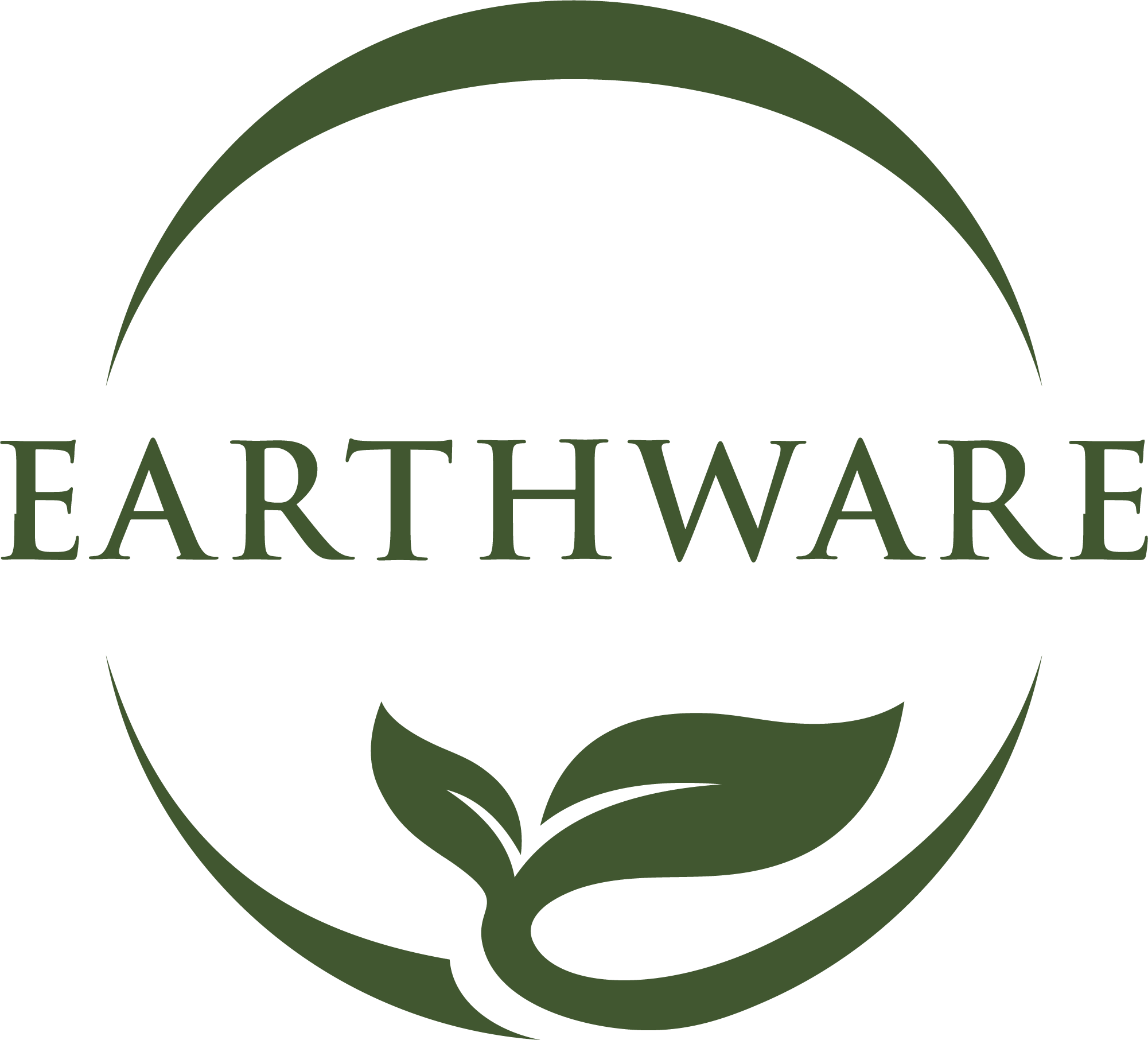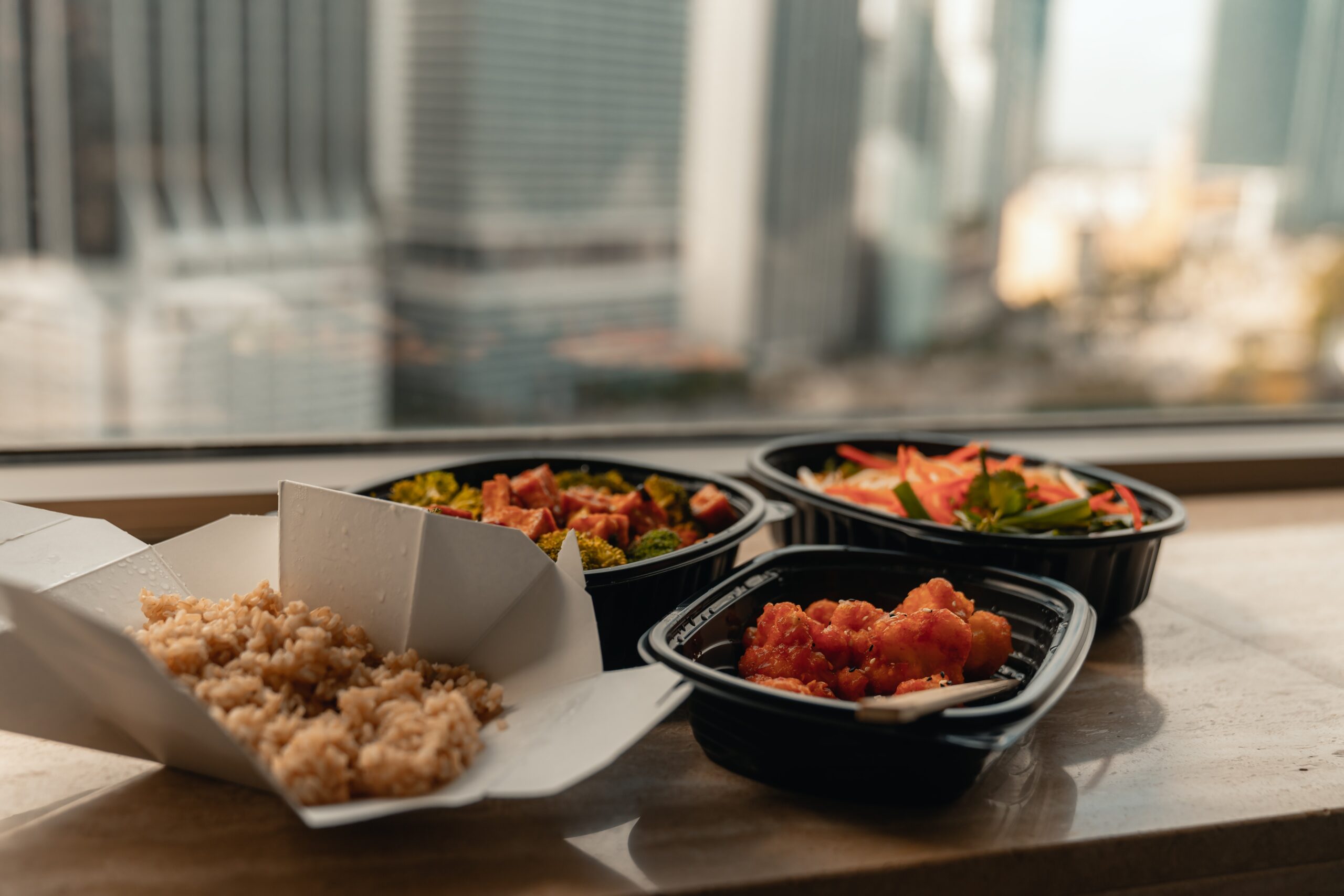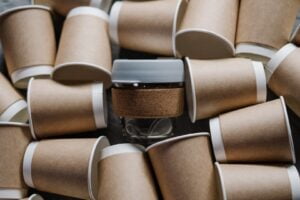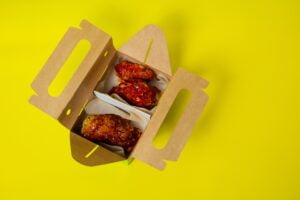Takeout Single Use Containers (SUC’s) are ubiquitous and cheap but are incredibly hard on the environment. So much so that the Canadian government has announced a partial ban on them which comes into effect at the end of 2021 and a full ban on all single use plastics by 2030. The partial ban is pretty vague in its scope as it describes the ban to cover “hard to recycle” takeout and delivery containers. While vague, it does include Styrofoam (a brand name by-the-way), which is going to be a tough blow for many restaurants as its use ticks both the ubiquitous and cheap boxes. But what specifically is the problem with SUC’s? Let’s look at the top 5 reasons why they suck.
- Only 9% gets recycled. It may be troubling for some to learn that municipal recycling programs are more about making us feel better about the waste we create rather than actually affecting what is going into our landfills. It is a widely established fact that 91% of what we put into our blue bins never gets recycled and simply gets redirected to the landfill. There are myriad reasons for this such as contaminated materials and mixed materials (for example plastic liners on cardboard), but the main reason is that there is not enough capacity at recycling facilities to handle anywhere near the volume being created. In years past, China was accepting solid recyclable waste from foreign countries but announced a ban on that practice which took effect on Jan 1st 2018, resulting in a massive build up of un-recycled recyclable materials. Although single use containers are not specifically quantified by this statistic, they are certainly part of the problem as anyone who has ordered takeout can attest to the amount of SUC’s they are left with after the meal.
- Just because it says “100% Compostable” doesn’t mean it is. Once again, this messaging is more about making you, the consumer, feel better about the waste you are generating. It comes down to two problems. Firstly, takeout containers need to be leak resistant. No one wants butter chicken sauce all over the place. In order to achieve that resistance to leakage, manufacturers coat the cardboard with plastic which is not on the approved list of things that municipal compost programs will accept as compostable. Secondly, while those 100% compostable containers may be compostable, they take 90 days to compost. This is way too long for municipal compost programs, which typically have 21 day compost cycles. For this reason, when you put those containers in the green bin, they get sorted out at the compost facility and are redirected to the…you guessed it, landfill.
- SUC’s come from a long way away. The vast majority of SUCs are manufactured in countries like China and Taiwan. That means that any container, compostable or plastic, has to travel over 9,000 kilometers just to get to a Canadian port, and then potentially transported another 3,500 kilometers across Canada only to be used once then be thrown away. So it’s not just the impact of a container being put into our landfills, it’s also about the carbon footprint that it creates by being transported to where it is quickly used and discarded.
- Labour Practices. It will come as no surprise that the vast majority of SUC’s are manufactured in China. It will also not surprise many that labour standards in China are chillingly different than in North America. While China has labour laws to protect workers, such as limits on overtime, they seem to be routinely ignored if they threaten to negatively impact the bottom line. The most common issues seem to be low wages, unpaid overtime, handling toxic materials, and crowded on-site dorms. To be fair, it’s not like there are no exploitative labour practices in North America, but it is far easier to determine who is an employer that has the best interests of their employees at heart.
- Plastic is officially “Toxic” or Poisonous. Despite enormous pressure from the $28 billion dollar plastics industry, in early May of 2021 the federal government of Canada added plastic to Schedule 1 of CEPA (Canadian Environmental Protection Act) labeling it as toxic. This paves the way to implement the single use plastics ban mentioned in the introduction of this blog. It is easy to see why the plastics industry desperately wants to avoid any connection between their products and the word toxic, and is also reminiscent of Big Tobacco’s doomed fight against smoking being linked with cancer. In the US, similar arguments are taking place. Chemical companies such as DuPont and Daikin have hidden from the public and the FDA the fact that a PFAS (aka: forever chemicals) chemical compound called 6:2 FTOH, that is common in carryout containers, are linked to kidney disease, liver damage, cancer, neurological damage, developmental problems and autoimmune disorders. While the FDA has said that more studies are needed to draw conclusions, a number of chemical companies have voluntarily agreed to phase out this compound over the next 5 years, meaning that Americans are going to continue to be exposed to these poisonous chemicals. To add insult to injury, it appears that the FDA has been aware of DuPont’s deception since 2015, so that exposure will have lasted at least 10 years. In a disturbing article by Erin Brockovich, titled “Plummeting sperm counts, shrinking penises: toxic chemicals threaten humanity” she warns in no uncertain terms of the devastating impact PFAS has on the one thing fundamental to humanity’s continued existence: our ability to reproduce.
In conclusion, while plastic has revolutionized myriad aspects of life for the better, the industry that produces and promotes it rarely has the best interests of the public at heart. When Gary Anderson designed the recycling logo in 1970, the plastics industry quickly adopted and adapted it as a symbol of their good intentions in an effort to make us all feel better about the use of plastics, but it is apparent that the 3rd part of the mantra, reduce, reuse, recycle is an illusion that serves only to hide an ugly truth. As it applies to SUC’s, recycling is both impractical and 91% inefficient, so the only sustainable way forward that does not entail abolishing takeout is to focus on reusable containers. Many countries have already embraced this concept, but it is only now that it is available in North America. Given an education and a choice, people will choose not to negatively impact the environment or their families health.
![]()



